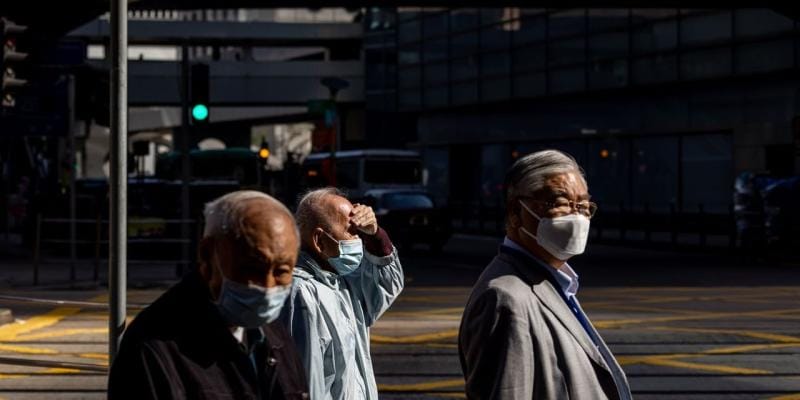
Shannon's excerpt from the article: "WSJ [excerpt]: Companies are setting their sights on a hot new growth market in #China: the #elderly.
The country is #aging much more quickly than other developing nations and has the world’s largest elderly population with more than 280 million people above the age of 60. China’s birthrate has fallen steeply, causing its population to shrink last year to 1.412 billion.
The swelling ranks of the elderly are leading multinational and local companies to reconsider their longer-term growth opportunities in China, and they are changing products and marketing strategies to win them over.
Businesses that used to focus on babies are now targeting Chinese seniors. Technology companies have created less cluttered mobile apps for elderly users and online retailers are featuring more seniors in their advertisements. Catering to older tourists is becoming a big moneymaker now that China has lifted its strict pandemic controls. Dance-music videos for seniors have also drawn big audiences.
'Consumption patterns will change,' said Colin Liang, head of China research at Redwheel, a global asset manager. 'This trend can’t be reversed.'
Senior citizens now make up close to 20% of China’s population, a proportion that is set to rise to 28% by 2040, predicts the World Health Organization. The country’s fertility rate was 1.09 last year, just slightly over one birth per woman and significantly below Japan’s 1.26.
Some multinational companies are already feeling the pain from the demographic shift. Kao, a Japanese personal-care giant, stopped producing disposable diapers in China this past summer. Swiss food and beverage giant Nestlé said in October that it will close an infant-milk formula factory in Ireland that made products for export to Asia.
'Clearly, birthrates around the world are in decline, (and) birthrates in China are very low,' said Ulf Mark Schneider, Nestlé’s chief executive, when asked about the plant’s closure on a call with analysts. 'Today’s global demand isn’t what it used to be.' He also said Nestlé is making progress regaining market share in China’s childhood-nutrition market.
Abbott Laboratories, which owns Similac, Ensure and other nutrition brands, said recently that it was discontinuing its baby-food business in China and would instead sell adult-nutrition products in the country.
French food company Danone, which makes Aptamil baby formula, last month launched in China its Fortimel brand of adult medical-nutrition products. The new bottled drinks are meant for patients discharged from hospital who are recovering from surgery, cancer or strokes.
Danone pointed to the country’s aging population and the rising incidence of chronic diseases, and said it had done in-depth research on Chinese patients’ eating habits and taste preferences. That helped the company decide on flavors such as 'red date & goji berry' for its Fortimel product sold in China, which is manufactured domestically."
#news #business

